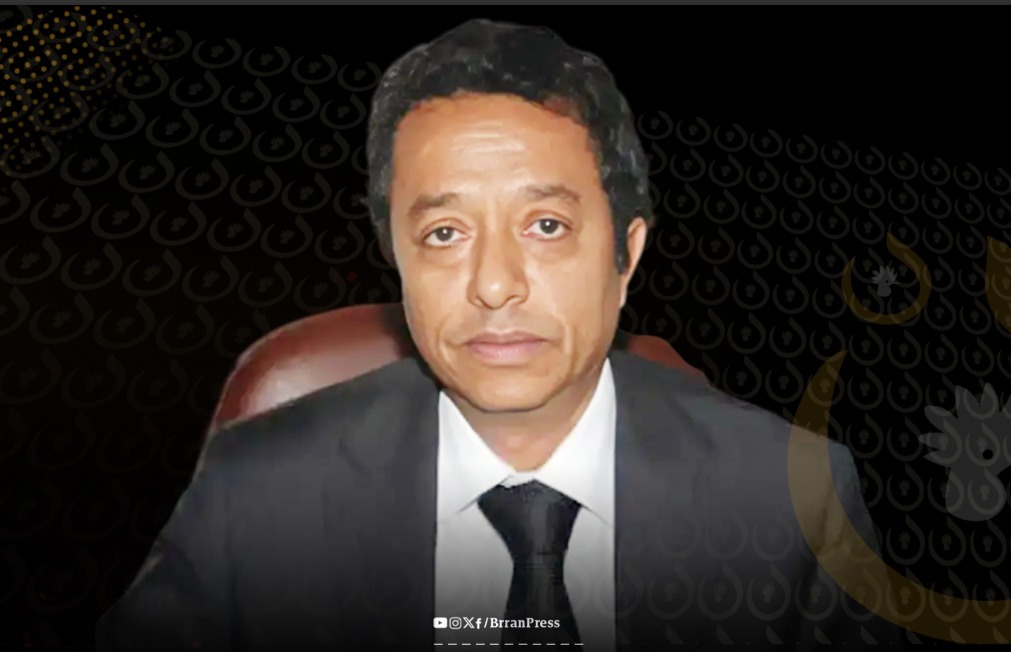


Barran Press
Former Minister of Legal Affairs, Dr. Mohammed Al-Mikhlafi, has stated that there is no "roadmap" for ending the war and achieving peace in Yemen in the sense of a comprehensive framework for negotiations and peacebuilding.
Speaking to Barran Press, Al-Mikhlafi emphasized that the political forces participating in the legislative branch have not received any "official document" outlining a roadmap. He added that "what we have heard from the leadership of the executive branch does not differ much from what is published in the media. However, the claims promoted by the Houthi rebel leaders are nothing more than measures to enable them to further control the people in the areas they control."
Regarding reconstruction, Al-Mikhlafi expressed concern about the Houthi militia's recurring focus on reconstruction, stating that it "represents an obsession for them to profit greatly by controlling the reconstruction process, just as they do with humanitarian aid, either directly or through companies owned by militia leaders. Even the lowest-ranking members of the militia hierarchy own more than ten commercial companies."
Al-Mikhlafi further stated that when the Houthis speak of humanitarian concerns, they are not referring to halting their cruel and brutal practices against the population. Instead, he believes their intention is to "enable them to receive more aid, weapons, and Iranian funds through air and seaports."
According to Al-Mikhlafi, this comes amidst the Houthi militia's continued actions to "blockade Yemen, prevent the export of gas and oil, disrupt the banking system, seize bank funds and deposits, confiscate a fifth of expatriate remittances or domestic transfers through banks, and continue killing civilians in their homes in Dhale, Taiz, Ma'rib, and other areas."
Al-Mikhlafi also highlighted the Houthi militia's actions in "summoning foreign forces to the Red Sea and destroying what remains of Yemen's resources, as the Zionist entity did in Hodeidah and the Western alliance is doing, turning the Red Sea into a base for foreign forces."
Al-Mikhlafi does not rule out the possibility of "a global conflict that will destroy Yemen and turn it into a dead sea."
In any case, Al-Mikhlafi believes that achieving peace requires "fundamental conditions, including addressing the root causes of the war, ending the seizure of power, disarming the militia, restoring the state, and returning to the political process to achieve a democratic transition."
According to Al-Mikhlafi, this requires "a key and essential condition: the Houthis must renounce violence, surrender their weapons, and transform into a political organization according to the conditions of the Law of Political Parties. The legitimate authority must possess a national army with all the attributes of modern armies to be able to enforce peace and protect Yemen's independence and sovereignty."
To achieve this, Al-Mikhlafi suggests starting with "the successful management of the areas under the control of the legitimate authority, followed by the management of the entire country, ultimately achieving a comprehensive and just peace, avoiding the repetition of failed partial solutions like the Stockholm Agreement, and involving Yemenis in the peace process through the participation of all parties, political forces, non-governmental organizations, women, and youth."
Al-Mikhlafi emphasizes the need for a peace agreement to include "mechanisms, procedures, and measures that prevent the recurrence of coups, remove the effects of wars since 1994, resolve the southern issue within its own framework, building on the outcomes of the comprehensive national dialogue conference, and address new developments that have emerged due to the war or the emergence of new forces."
He stresses the importance of "establishing transitional justice to provide redress for victims and prevent the repetition of serious human rights violations against Yemenis, and establishing a state of citizenship – a democratic federal state."
On July 23rd, the UN envoy to Yemen announced that the internationally recognized Yemeni government and the Houthi militia, internationally listed as a terrorist organization, had reached several de-escalation measures regarding the banking sector and Yemenia Airlines.
The agreement, according to a statement from the envoy's office, included "revoking recent decisions and measures against banks from both sides and refraining from any future similar decisions or measures. Additionally, resuming Yemenia Airlines flights between Sana'a and Jordan, increasing the number of flights to three daily, and operating daily flights to Cairo and India or as needed."
The agreement also included holding meetings to address administrative, technical, and financial challenges facing the company, and initiating meetings to discuss all economic and humanitarian issues based on the roadmap.
The envoy acknowledged the significant role played by Saudi Arabia in reaching this agreement, affirming the UN's readiness to work with both parties to implement the agreed-upon measures. He also offered to facilitate communication with authorities in Jordan, Egypt, and India.
The Yemeni government promptly implemented its commitments by halting measures taken against banks, while Yemenia Airlines resumed flights from Sana'a Airport to Jordan, Cairo, and India for the first time since 2014.
On December 23rd, the United Nations announced that the Yemeni parties had reached understandings to commit to a set of measures, including implementing a nationwide ceasefire, taking steps to improve living conditions in Yemen, and engaging in preparations for resuming a comprehensive political process under UN auspices.
The roadmap and peace efforts in Yemen were halted by attacks carried out by the Houthi militia, internationally listed as a terrorist organization, against commercial cargo ships in the Red Sea, the Arabian Sea, and the Gulf of Aden since last November.